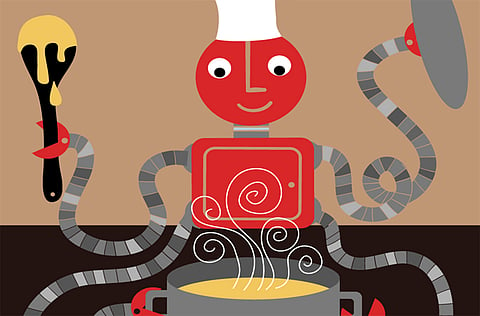Add a pinch of curiosity...
A food lover’s journey takes her down uneaten paths

Food is to be read about, experimented with, marvelled at, and of course, eaten with great gusto. This complete but unending journey is what makes food-lovers love food.
But no one is born a foodie; one only learns to appreciate it, and then seek out newer and more unusual flavours.
When I am asked what made me a disciple of food, I have an unusually pithy response. It is curiosity. It may have landed on Mars in August, but curiosity has been living in my kitchen for many years. She is my rover, teacher, and guide.
Curiosity leads. A mild distaste for florets led me to create a cauliflower caviar — a fine mince sautéed in olive oil with salt, pepper and carom seeds. A desire to eat a forgotten favourite made me recreate one of my granny’s meat recipes - with no knowledge of the ingredients to be used, except for the meat. Wondering what would happen if one ingredient was substituted with another led to genuine triumphs: my beetroot cake replaces the carrot one, and sweet potato pie replaces pumpkin.
Experimenting with food is one of the finest acts of madness that can be undertaken by any sane person. As we head into a new year, resolve to do something differently in the kitchen. Steam meatballs instead of frying them, make savoury French toast instead of sweet. Watch that celebrity chef’s show. Ask real people for their recipes. Learn as you go.
As author Laurie Colwin once said: “No one who cooks, cooks alone. Even at her most solitary, a cook in the kitchen is surrounded by generations of cooks past, the advice and menus of cooks present, and the wisdom of cookbook writers.”
— The author believes she uses seaweed sprinkles, herb cubes, and shrimp paste in her kitchen — because when she bought them, they were only labelled in Japanese, Czech and Malay.



